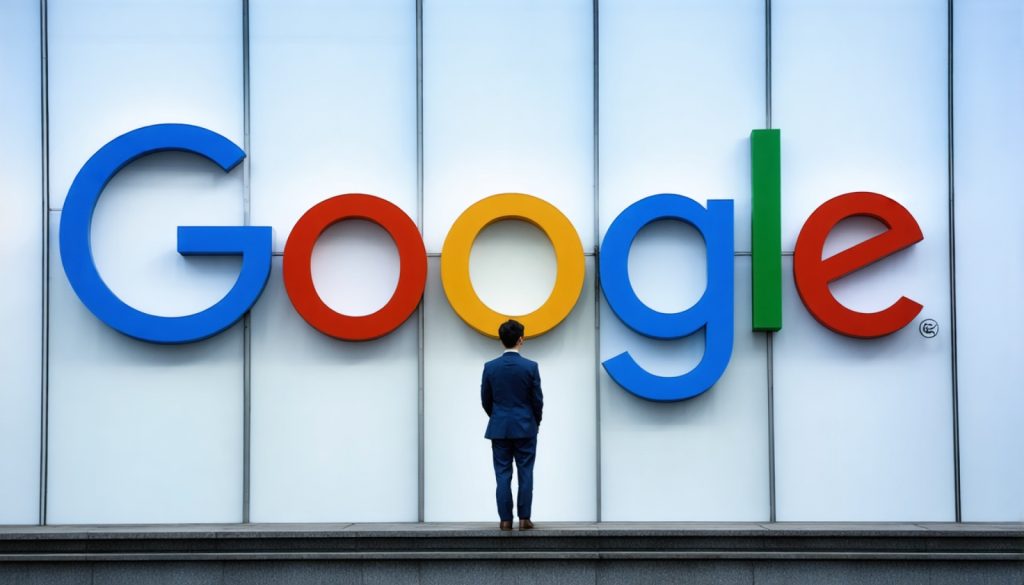
- Japan’s Fair Trade Commission has ordered Google to halt monopolistic practices involving pre-installed apps on Android devices.
- The investigation scrutinized Google’s mandated inclusion of its browser and search engine, raising concerns over consumer choice.
- This decision highlights a global shift towards addressing monopolistic behaviors in the tech industry.
- The ruling sends a strong message to tech giants: adhere to fair trade practices and prioritize consumer rights.
- Japan’s actions may inspire other countries to conduct similar investigations, impacting the global digital landscape.
- The move aims to ensure a fairer digital ecosystem, where even powerful companies must respect market rules.
- This development reflects a broader trend of increasing accountability for tech firms worldwide.
The dynamic between technology giants and regulators has taken a surprising turn in the Land of the Rising Sun. As Mount Fuji stands tall in the background, seemingly eternal, Japan’s Fair Trade Commission sent ripples through the tech world with a recent order demanding Google halt certain practices deemed monopolistic.
For over 18 months, investigators peered into the heart of Alphabet’s practices, scrutinizing every corner where technology meets consumer rights. They found a symphony of premeditated market control, orchestrated through pre-installed apps on Android devices. In an age where choice is sacred, Google’s mandated inclusion of its own browser and search engine on smartphones was seen as an oppressive crescendo to a song of supposed free market competition.
The Japanese watchdog’s decision reverberates far beyond Tokyo’s neon lights, casting a spotlight on a tech landscape increasingly wary of monopolistic behavior on a global scale. This is not merely a local skirmish but a clarion call echoing in the halls of regulators worldwide. Their message is clear: even digital behemoths must adhere to rules that ensure fairness and consumer choice.
As cherry blossoms prepare to bloom across Japan’s serene landscapes, a new kind of renewal appears on the horizon—a transformation in how behemoths like Google operate within borders, both digital and physical. This decisive move could encourage other nations to scrutinize tech firms with renewed vigor, ensuring a fairer digital ecosystem.
The real question now is whether this challenge will inspire similar actions across the globe. In an interconnected world, where borders become blurry in the digital realm, Japan’s stand may serve as a blueprint for others—proving that even the mightiest companies must play by the rules of every field they enter.
Why Japan’s Stance Against Google Could Ignite Global Regulatory Changes
Introduction
Japan’s Fair Trade Commission has taken a significant step by ordering Google to stop allegedly monopolistic practices, highlighting an intensifying regulatory focus on tech giants. The decision is emblematic of a broader trend, where countries worldwide grapple with the challenges posed by big technology companies. While the immediate impact is localized, the implications could be global.
Pressing Questions and Insights
1. Why did Japan Target Google?
Japan’s actions stem from concerns over consumer choice. By pre-installing its browser and search engine on Android devices, Google allegedly limits users’ options, stifling competition. These concerns echo globally, where regulators question if tech giants unfairly dominate markets.
2. Could Other Nations Follow Japan’s Lead?
Absolutely. Japan’s decisive move might encourage other countries to re-evaluate their approach to tech regulation, potentially prompting new laws and guidelines. For example, Europe has been active with its General Data Protection Regulation (GDPR) and might leverage Japan’s decision as a case study in fairness and consumer protection.
How-To Steps & Life Hacks
How Can Consumers Bypass Pre-Installed Applications?
1. Explore Alternatives: Research and install alternative browsers and search engines from app stores.
2. Customize Settings: Set third-party apps as defaults through device settings.
3. Utilize Web Apps: Save web-based applications on your home screen instead of downloading apps.
Real-World Use Cases & Market Trends
Shift Towards Open Ecosystems:
The trend towards an open ecosystem, where interoperability and user choice drive innovation, is gaining traction. Companies offering flexibility may gain a competitive edge as consumers become more privacy-aware and demand transparency.
Reviews & Comparisons
Google vs. Competitors:
– Google Chrome vs. Firefox: Firefox is praised for privacy features, while Chrome leads in speed and integration.
– Google Search vs. DuckDuckGo: DuckDuckGo offers better privacy, whereas Google excels in accuracy and breadth of information.
Controversies & Limitations
Security Concerns With Pre-Installed Apps:
While pre-installed apps may pose less risk of malware, they also limit user autonomy and preference. The debate between security and freedom continues, emphasizing the need for regulators to ensure balanced policies that protect both.
Insights & Predictions
Future of Tech Regulations:
The road ahead will likely witness an increase in regulatory actions globally. Expect more stringent policies enforcing transparency and accountability among tech companies, promoting competition and safeguarding consumer rights.
Actionable Recommendations
1. Stay Informed: Follow regulatory updates and understand how they affect your digital environment.
2. Explore Options: Don’t be restricted by pre-installed applications; evaluate alternative tech solutions.
3. Engage in Advocacy: Support regulatory frameworks focusing on fair competition and user rights.
Related Links
For more insights on tech regulations and consumer rights, visit the official website of the Federal Trade Commission for comprehensive resources and guidance.
Japan’s stand against Google’s practices may only be the beginning of a global movement towards greater accountability and consumer protection in the tech industry. Observing these trends, both consumers and companies must adapt to the evolving digital landscape.



